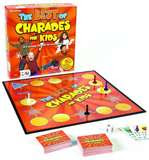This week’s class is totally different from the previous classes. Usually Pn.Foziah will deliver all the input and we just need to listen and understand, but this week we were required to work in groups and present our task in power point presentation. This would be the first presentation since we entered University Malaya, so everyone was really excited.

This week’s chapter is ‘Working with young language learners’. We were divided into 6 groups and each of the group deal with different subtopics. As future primary school teachers, these topics are very important and will be very useful as we will be dealing with young learners. Due to time constrain, only two groups were able to present today. Their topics were ‘1.3 - Children’s capacity for indirect learning’ and ‘1.6 – The instinct for interaction and talk’.
From the first group’s presentation I realised that indirect learning is very crucial for learners especially the younger ones. Indulging them in indirect learning would be fundamental to develop their vocabulary, pronunciation or even their knowledge about phrases. In my opinion, making the pupils to learn indirectly or naturally is much more effective compared to the normal chalk and talk phenomena (direct learning). Indulging pupils in guessing games such as ‘Hang-man’ and ‘Charade’ would be suitable to develop young learners language as it encourages critical thinking as well as creativity which indirectly profits pupils’ learning.



Meanwhile, the second group presented on ‘The instinct for interaction and talk’. This group did a very good job as they gave definition for the words ‘instinct’, ‘interaction’, ‘talk’ and finally an overall definition of the subtopic. Starting their presentation with simple definitions enabled me to understand and cope with their presentation. From my point of view, children love to talk and there is no point for a teacher to control them from talking. Teachers should actually encourage talking as it can develop pupils’ vocabulary, pronunciation and intonation. Therefore, I would say that teacher’s job is not to control pupils from talking but to make the talking more educational and beneficial. This can be done by assigning pair or group works. When pupils work in groups, there will be more chances for them to interact, communicate and share ideas which will eventually develop their language proficiency.

I agree that pupils should be given the chance to talk, but how can we as teachers make sure that what they talk in groups are things related to education or the subjects? I mean, if we leave them to do group discussion, some of them may start talking about everything else except the work assigned to them to discuss.
ReplyDeleteFlora, when the pupils are assigned a task or indulged in a group discussion, the teachers should always monitor them. Teachers become the facilitators while the pupils construct their learning. Teachers can pose questions to a group or a particular pupil in order to see their progress of the task assigned. By doing this, we can ensure that the pupils are concentrating on the task assigned to them.
ReplyDelete